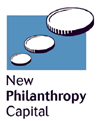Charity Monitor tracks impact of bad publicity on charities
Charity Monitor’s four monthly surveys have helped track how bad publicity has affected two major charities.
Bad publicity can cause serious damage to charities, particularly in terms of public income. Other times, however, it can blow away without causing as much damage was might have been expected.
Charity Monitor has tracked the impact of bad publicity on two different major charities, both of whom have hardly been out of the news for two or three years due to reports and accusations of profligacy, mismanagement, industrial action and senior management rows.
Advertisement
Referring to them as charity A and charity B, Charity Monitor tracked the levels of the the public’s spontaneous awareness and the likeliness of giving to the charities if asked during the period August 1998 to August 2003. Marketing and advertising consultant Andrew Papworth, who set up Charity Monitor 13 years ago, commented that the figures suggested that “the constant publicity has helped to keep their spontaneous awareness pretty buoyant but public support – measured by likelihood to donate to them if asked – has fallen.”
Papworth explained that the two charities were quite different. Charity B has a fundamentally stronger appeal in that more people are inclined to give to it than are spontaneously aware of it, but the strength of its appeal has been seriously eroded over the last two or three years. Charity A on the other hand started from a weaker position but has still lost appeal gradually over four or five years.
However, Papworth concludes that “both charities can take some comfort in the fact that the most recent surveys for the Charity Monitor suggest that the worst may be behind them.”
The Charity Monitor was designed and launched by Andrew Papworth for the RNLI and has been running every four months throughout the past 13 years. For some years the RNLI have allowed Andrew to syndicate the general data from the Charity Monitor to other charities at about a quarter of the cost of going it alone at full market rates.




